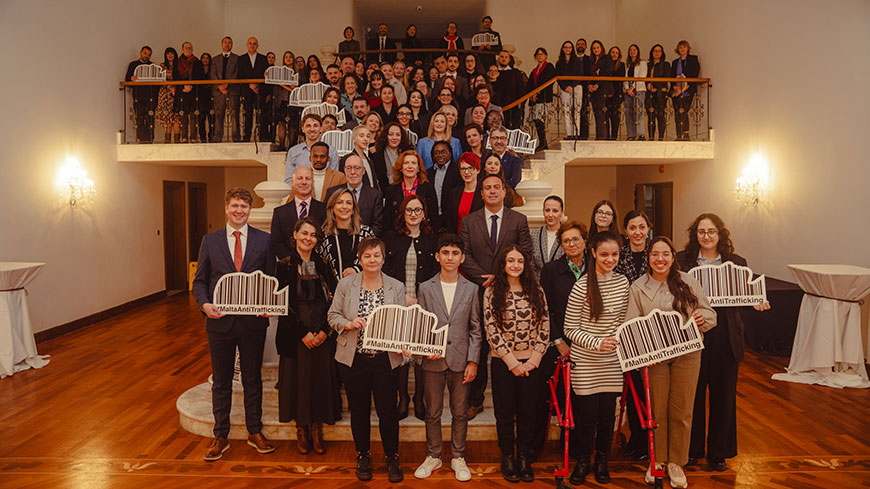On 15 January 2025, the Council of Europe, the European Commission (DG REFORM) and the Directorate for Human Rights of the Prime Minister’s Office of Malta co-hosted the Final Conference of the Technical Support Instrument (TSI) joint project “Supporting Malta in the design and implementation of a new National Anti-Trafficking Strategy” (2022-2024). Held in Saint Julians, the conference featured a presentation of Malta’s new National Anti-Trafficking Strategy and Action Plan (2024-2030), which were developed as part of the project, alongside key implementation tools developed under it.
The National Strategy reaffirms Malta’s commitment to fulfilling its international obligations in the area of combating human trafficking, in particular under the Council of Europe Convention on Action against Trafficking in Human Beings and the EU Directive 2011/36/EU on preventing and combating trafficking in human beings and protecting its victims. To support the implementation of the Strategy, the project developed key implementation tools, including Theory of Change, Monitoring and Evaluation Framework, Communication Strategy and Action Plan, and Implementation Guidelines.
Opening the conference, Ms Rebecca Buttigieg, Parliamentary Secretary for Equality and Reform, emphasised that the successful implementation of this TSI project has demonstrated Malta’s steadfast commitment to continue to strengthen its anti-trafficking system and to keep the fight against human trafficking high on Malta’s political agenda.
Ms Petya Nestorova, Executive Secretary of the Council of Europe Convention on Action against Trafficking in Human Beings, underlined that the adoption of Malta’s first National Anti-Trafficking Strategy was the expression of political will to reform the country’s anti-trafficking architecture and address new challenges, such as the increase in trafficking for the purpose of labour exploitation and the use of information and communication technologies to recruit and exploit victims.
Mr Kjartan Björnsson, Deputy Director and Head of Unit at DG REFORM, stressed that trafficking in human beings remains a highly lucrative crime, affecting thousands of individuals, primarily women and girls who are trafficked for sexual exploitation. “We must all do more to help them. I hope the project will not only provide benefits in Malta but also provide a powerful model for others to emulate.”
The conference brought together some 100 participants from Malta’s government ministries and agencies, civil society and international organisations, as well as experts from Bulgaria, France, Greece, Portugal, Spain and the United Kingdom.
During the conference, participants explored key issues in a series of workshops, including developing an effective National Referral Mechanism for the identification of victims of trafficking and their referral to assistance, strengthening collaboration between law enforcement and civil society, and promoting ethical survivor engagement based on empowerment and support.
In addition, a side event on “Children’s participation in the design of child-friendly anti-trafficking tools” will be organised on 16 January 2025, highlighting the importance of integrating children’s perspectives into initiatives to safeguard their rights and well-being.
